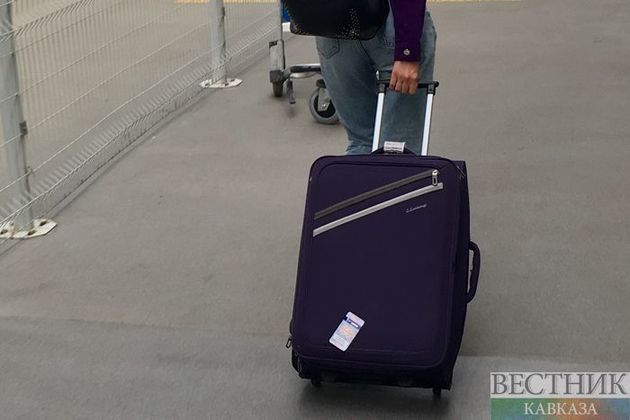What will the world of travel look like after COVID-19? As much of the globe continues to battle a deadly virus that has all but brought tourism to a standstill, several cities have banded together in order to find technological solutions to revive the ailing industry, The Jerusalem Post writes in the article Jerusalem, Dubai, Barcelona look to travel tech to save tourism industry. Jerusalem, together with the cities of Lisbon, Barcelona, Dubai, Johannesburg and Paris, are set to launch the International Travel Tech Forum, which will promote travel tech startups and tourism innovation worldwide.
The Jerusalem Entrepreneurs Tourism Hub (JETH) and the Jerusalem Development Authority are leading the initiative. Nofar Nistani, director of JETH, said that the forum will be held each month, with Tuesday’s event focusing specifically on Barcelona. Among the speakers are Anna Borduzha, business development manager at Mabrian Technologies, a travel intelligence platform and Nicholas Bettles, the commercial manager for Israel at Virgin Atlantic, who will discuss the future of aviation. “Until [COVID-19], none of the relevant stakeholders in the tourism industry understood that technology is something that needs to be part of the industry,” Nistani told The Media Line. “They were really traditional and tried to keep it that way. [Now] they understood that technology is actually the cure for their problems. “As cities, we realized that we had to something,” she continued. “We are all facing the same tourism market, which is really stubborn regarding implementing technology.”
Ilanit Melchior, director of tourism at the Jerusalem Development Authority, told The Media Line that unlike the well-established cybersecurity and artificial intelligence arenas, travel tech is a relative newcomer to the Israeli hi-tech scene. To this end, the city of Jerusalem is in the process of attempting to develop that travel tech ecosystem and hopes that the international forum will foster fruitful collaborations down the line.
The tourism sector, Melchior said, “is going to adapt or rely on technology in order to ensure that experiences will be better and will take care of tourists’ health. “This means that there will be a ‘green passport’ as long as they allow it,” she explained, referring to a proposed Health Ministry initiative that would see Israeli citizens travel with a document – a so-called “Green passport” – that certifies COVID-19 vaccination. Such a document, if approved, would enable vaccinated individuals to avoid having to go into isolation after international travel or quarantine after coming into contact with an infected person.
“That information will be shared with the destination,” Melchior said. “We will know which hotel they will be staying in and the hotel will be able to offer them full service using their phone. If something – god forbid – happens to them then there is a live connection to all the medical assistance they need.”
Melchior is optimistic that travel will rebound once the pandemic is under control; however, she also believes that people will choose to travel differently by taking longer vacations but fewer trips overall on a yearly basis. Additionally, travel insurance policies will need to be overhauled to focus specifically on medical care and cancellations related to COVID-19.
The world’s tourism industry has incurred monumental losses from the pandemic. According to the United Nations Conference on Trade and Development (UNCTAD), the entire sector around the globe stands to lose $3.3 trillion – or 4.2% of the global gross domestic product (GDP) – over a 12-month period. A separate report released last week by the UN’s air transportation agency confirmed that air travel fell by roughly 50% over the course of 2020, amounting to a financial loss of around $370 billion.
Itai Green is the founder of the Israel Travel Tech Startups (ITTS) Community, a hub that includes hundreds of travel tech entrepreneurs from all over the world. Green is also the founder and CEO of Innovate Israel, which connects global corporations to Israeli entrepreneurs. While the travel, tourism and hospitality industry have undoubtedly undergone a period of dramatic change since the start of the crisis, Green believes the sector is on the road to recovery.
“We are currently eleven months after the first COVID-19 screenings have begun in airports around the world,” Green told The Media Line. “Have there been any technological breakthroughs that could help us travel freely again? The answer is yes, thanks to some out-of-the-box thinking.”
According to Green, several travel tech solutions have emerged that could help the industry adapt. Some examples include Israel-based companies such as Juganu, which uses LED lighting to destroy bacteria and viruses on surfaces and in public spaces; Vayyar, a healthcare technology company that has developed an intelligent radar sensor that can be used to monitor people’s temperature ahead of their flight; and Robotemi, maker of the Temi robot, which can be deployed on planes to help serve meals and beverages to passengers.
Many travel tech startups have had to pivot their business models in order to survive the economic fallout of the pandemic. “Some companies were severely affected by the pandemic, while others were fortunate enough to have raised capital before the crisis,” Green said, adding that tech entrepreneurs are already in the process of helping airlines, hotels and travel agencies prepare for the day after the pandemic. “Traditional industry leaders will be able to take their competition by surprise when the time comes,” he said.






